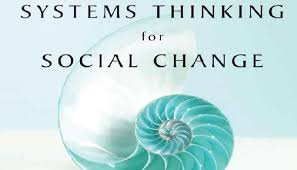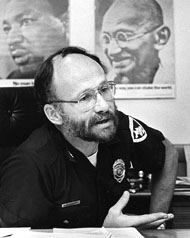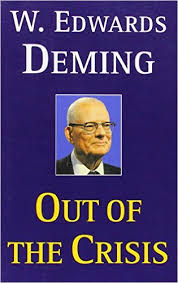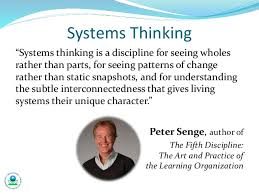 In the summer of 1980, NBC television aired an documentary that would change America. It was titled, “If Japan Can, Why Can’t We?” and it brought to our nation’s attention the work of an aging MIT professor, Dr. W. Edwards Deming.
In the summer of 1980, NBC television aired an documentary that would change America. It was titled, “If Japan Can, Why Can’t We?” and it brought to our nation’s attention the work of an aging MIT professor, Dr. W. Edwards Deming.
The documentary caused America to think about quality, customer service, and continuous improvement. In and of itself, it brought our automobile manufacturing system out of the dark ages and back into international prominence.
And it inspired me to bring the Deming Management Method into the Madison Police Department while, at the same time, Mayor Joe Sensenbrenner was implementing these ideas into city government and, as a spin off, into the educational and business spheres of our city. It was a convergence of the best thinking of industry, business, education, and healthcare into government and, yes, police!
My personal relationship with Dr. Deming over the years and his teaching helped us transform the Madison police department from a good police department to a great one.
Deming’s profound knowledge enabled me to think outside-the-box and apply proven management techniques — especially systems thinking* — to leading a police department — and it worked. [In my book, Arrested Development, I outline how all that happened.]
I am proposing today that using Deming’s methods can very well be the “out-of-the-box” thinking and concurrent action that is needed today in the ranks of our police. Yes, it can bring American policing out of their present crisis. [Deming called his revolutionary book, Out of the Crisis.]
*Systems thinking helps those of us who work in social systems to improve them the same way that people use engineering principles to improve mechanical systems.
- Systems thinking is especially important when those at work need to see the “big picture” and not just their part in it.
- Systems thinking is a method to approach recurring problems which have been made worse by past attempts to fix them.
- Systems thinking is important to use when an action affects or is affected by the environment surrounding the problem.
- System thinking works especially when approaching problems whose solutions are not obvious. [For more, read Daniel Aronson’s, “Overview of Systems Thinking.”]




I agree that systems thinking would benefit policing. Systems thinking has many versions, such as Demming’s total quality mangement, continuous process improvement, Six Sigma, etc…. I would venture to say though that not many police leaders have read Senge’s Fifth Discipline.
The current craze for accountability runs counter to systems thinking. The Task Force’s recommendations and PERF’s use of force guidelines are more accountability engines than an effort to embed systems thinking into policing.
LikeLike
What is going on in the USA
11 cops shot 5 dead?
Is there anything going to be done before we have an all out war?
Five officers shot dead, at least nine other people wounded by snipers at protest in downtown Dallas (WARNING: GRAPHIC CONTENT)
http://www.nydailynews.com/news/national/officers-dead-shot-protest-downtown-dallas-article-1.2703354
LikeLike
As a retired quality improvement consultant I agree wholeheartedly that the police would gain value from reviewing Deming and other quality experts. I remember when Joe Sensenbrenner instituted TQM in the city. It seems as though the city has slipped back from that time.
LikeLike
True.
LikeLike
Let’s not forget David that Mr. Demming’s success was brought about in a collectivists culture, ours is an individualistic culture. The incentives for change need to reflect the individualism that dominates here. In other words, the individual officer will ask “What’s in it for me?” Highly effective policing is, after all, in the hands of individual police officers, not supervisors or the chief. We can create incentives but let me ask this, What exactly do we want our officers to do that we can reward them for?
I have to mirror Mark’s comments in that systems thinking and accountability mechanisms are not at all compatible.
LikeLike
Perhaps time to transform?
LikeLike
I wish all government agencies would adopt Deming’s methods. The trouble is that our politicians and the political appointees who run the various government agencies spend much of their time trying to improve their own careers prospects and have no long range vision and thinking in trying to make government better. Instead, all they do is spend their time trying to cut staff
LikeLike
“What’s going on?” I was driving for 12 hours Thursday. As I listened to MSNBC cable news on satellite radio I heard guest speaker after speaker characterize the shooting in Minnesota as “murder” or “extra-judicial execution.” Statements such as those without direct knowledge of the facts or with the benefit of objective analysis of the events are reckless and irresponsible. Statements by the Governor of Minnesota that the shooting would never have occurred if the driver had been white are reckless and irresponsible.
Humans have biases because our brain is designed to function using heuristics (I see A and respond/think B). We rarely engage in critical thinking. The best we can accomplish as humans is to recognize our biases and guard against those biases. We can force ourselves to think critically (but not under severe stress – the significant flaw in the PERF recommendations).
Many thought leaders in America have for the last two years helped to create a biased belief about interactions between police officers and blacks. It should come as no surprise that some people will come to believe that if a police officers shoots a black that it was a murder. It should come as no surprise that someone with a marginal personality will act out a fantasy to fight injustice.
Soooooooooooo, that’s what’s happening in America. Now, what will happen next? What should happen next is for police professionals to call out reckless and irresponsible statements that incite bias and additional violence. We should also call out the press that facilitates reckless and irresponsible behavior. Handing a megaphone to the person who screams “fire” in a crowded theater is not journalism.
LikeLike
But SOMETHING’S got to happen. We cannot go on like this.
LikeLike
Well, I have not seen the mainstream media (which is overwhelming conservative) that being held accountable for all the hate talk that they have been dong for the last 8 years since Obama has been in office. It is time to break up wealthy people/corporate controlled of the media and return it to represent all sides of society.
LikeLike
I think we need to begin by challenging the premise that the police are the problem Mark points out the fact that we all have bias as part of the natural human condition. Try saying that to a group of academics and you will be accused of being a racist (been there done that). The police merely reflect society and the communities they serve but they are being targeted because it is much easier than addressing the real problem.
If we can agree on this then I believe we can articulate a leadership vision for individual police officers that could make a difference.
LikeLike
I can agree to that. But you and I know as former police leaders, police can do a lot to overcome these problems while other responsible area of civic life langer…
LikeLike
The police help played a significant prioblem in how society became what it is today. The problem is that many of them refuse to help bring positive changes in society or they think is it someone’s problem.
LikeLike
There is research that shows that best practices do not necessarily transfer across cultures. Saturn is a good example of that difficulty. Both GM management and the UAW disliked Saturn and its attempt to out TQM the Japanese. Within Saturn the effort was successful, but within the larger GM organization and the auto industry those changes were strongly resisted.
LikeLike
Sadly…
LikeLike
Ross Perot tried to change the culture at GM but he couldn’t. As a matter of fact, the GM management were shock and outrageous that even the lowest ranking worker at Perot’s EDS company had stocks. The GM CEOs and upper management had s this belief that only managers should get stocks and bonuses, not the rank and file. We replace the British aristocracy with our own form of aristocracy.
LikeLike